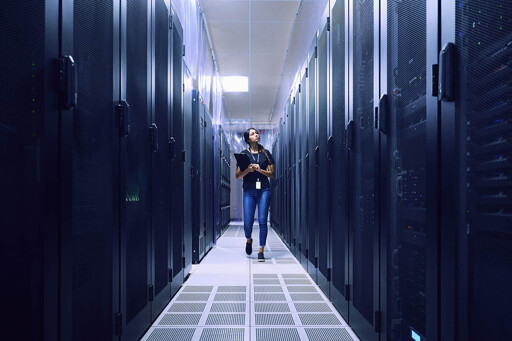Grok’s ‘spicy’ video setting instantly made me Taylor Swift nude deepfakes
-
femcel maxxing
It's so dumb to take the word incel and turn it around because incels actually want to sleep with women and get mad that they cant. " Femcels" do not wanna be near men and wanna delete them off the planet lol so I don't get it?
-
You sound like the sort of person who's made a Facebook post along the lines of "If you can't handle me at my worst..."
Aaah yes right next to, I need a man in my life to make me whole, I need 10 kids to fill this empty void in my heart. I want that tradwife life where I have a full time wfh job, cook, clean and do all the child minding like a good lil slave and at the end of the day when he comes home, I give him the good ole skull vacuum service
 BEFORE HE TAKES A SHOWER. Sounds like heaven!
BEFORE HE TAKES A SHOWER. Sounds like heaven! -
The image generator will also make photorealistic pictures of children upon request, but thankfully refuses to animate them inappropriately, despite the “spicy” option still being available. You can still select it, but in all my tests, it just added generic movement.
So it does know theres a line to cross somewhere…
There’s definitely models that have no problem with that yeah
-
So? The manufacturer of the product is not responsible for how people use the product. Otherwise there would be no gun manufacturers anymore.
They are, however, responsible if the product they created does illegal things.
-
Just block all men from your life and you'll be fine

 ️ tried and trusted method
️ tried and trusted methodHaha gender discrimination is so cute and quirky.
-
Aaah yes right next to, I need a man in my life to make me whole, I need 10 kids to fill this empty void in my heart. I want that tradwife life where I have a full time wfh job, cook, clean and do all the child minding like a good lil slave and at the end of the day when he comes home, I give him the good ole skull vacuum service
 BEFORE HE TAKES A SHOWER. Sounds like heaven!
BEFORE HE TAKES A SHOWER. Sounds like heaven!You sound like a fun person to be around...
-
Taylor swift nude gross, but trump nude good? You have rare taste it seems.
That’s not what they said at all. They said they want two bads with two lawsuits coming from every side of the political spectrum.
-
You sound like a fun person to be around...
Why because I don't let anyone infiltrate my skull?
-
Aaah yes right next to, I need a man in my life to make me whole, I need 10 kids to fill this empty void in my heart. I want that tradwife life where I have a full time wfh job, cook, clean and do all the child minding like a good lil slave and at the end of the day when he comes home, I give him the good ole skull vacuum service
 BEFORE HE TAKES A SHOWER. Sounds like heaven!
BEFORE HE TAKES A SHOWER. Sounds like heaven!Don't get mad at me because you've decided to be angry about something that isn't happening. How many women do you know who have 10 kids, how many men do you know would want to have 10 kids? That is no one's fantasy.
If you want to make being the victim your whole identity that's fine but the rest of the world doesn't need to hear about it.
-
Swift could easily get a lawsuit set up against them and most likely win, if AI nudes start getting made and sent out by average people. If she did, she's already won the court of public perception or whatever it's called ( drawing a blank ) because of how popular she is. I guarantee if she told people not to use grok or ex-twitter, a large of the swifties on the platform would run faster than Usain Bolt to delete their accounts.
Public opinion is what you were looking for there.
-
Don't get mad at me because you've decided to be angry about something that isn't happening. How many women do you know who have 10 kids, how many men do you know would want to have 10 kids? That is no one's fantasy.
If you want to make being the victim your whole identity that's fine but the rest of the world doesn't need to hear about it.
My grandma had 11 kids.
-
I appreciate Grok for being the platonic ideal AI system. Not like these others that get little guardrails and tweaks added every time a news article hits about some inevitable fucked up output it can produce. Just pure unrefined donkey shit. 🤌
Oh it's refined donkey shit alright, it has guardrails just like any commercial LLM.
-
It's so dumb to take the word incel and turn it around because incels actually want to sleep with women and get mad that they cant. " Femcels" do not wanna be near men and wanna delete them off the planet lol so I don't get it?
Who said incel? You can also be a female volcel,
-
I appreciate Grok for being the platonic ideal AI system. Not like these others that get little guardrails and tweaks added every time a news article hits about some inevitable fucked up output it can produce. Just pure unrefined donkey shit. 🤌
Grok has guardrails, it's just they're there for different reasons.
-
The image generator will also make photorealistic pictures of children upon request, but thankfully refuses to animate them inappropriately, despite the “spicy” option still being available. You can still select it, but in all my tests, it just added generic movement.
So it does know theres a line to cross somewhere…
Reminder that Elon Musk told people on Reddit, that he will set the Age of Consent to 14 on Mars, if not lower.
-
This post did not contain any content.
Musk offered to father her children. This was probably done deliberately.
-
This post did not contain any content.
That picture is uncanny.
-
Public opinion is what you were looking for there.
Yeah, my brain had stopped working. Thanks for the help.
-
Haha gender discrimination is so cute and quirky.
It is if the extent of your personality is limited to whining about how "all men are pigs" on Facebook. It loses it's impact after the 15th time they do it.
-
Oh it's refined donkey shit alright, it has guardrails just like any commercial LLM.
Yep, grok is not "free as in freedom" in any meaningful way, it is a playpen, just a different shape playpen that will not shy away from presenting human mammaries, according to the article, article which does not present any proof
-
-
New Executive Order:AI must agree on the Administration views on Sex,Race, cant mention what they deem to be Critical Race Theory,Unconscious Bias,Intersectionality,Systemic Racism or "Transgenderism
Technology 1
1
-
-
Windows 11 will soon be able to describe images on your screen using AI — and it'll all be done locally
Technology 1
1
-
-
-
The Current System of Online Advertising has Been Ruled Illegal by The Belgian Court of Appeal. Advertising itself is Still Allowed, but not in a Way That Secretly Tracks Everyone’s Behavior.
Technology 1
1
-



